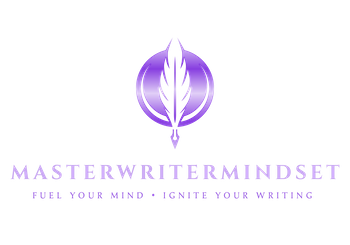You want to keep writing, but sometimes, when it’s time to pull out your laptop, you find yourself suddenly reorganizing your bookshelves, deep-cleaning your kitchen, or staring blankly at the ceiling. Anything else seems far more appealing.
Maybe you’re tired. Perhaps you’ve convinced yourself that watching just one more episode of your favorite show will magically recharge your creative energy. Or the existential dread of putting words onto a blank page has kicked in.
You tell yourself these feelings will pass, and then you’ll return to writing. But let’s be honest—we’re likely to have more days when we don’t feel “up to it” than days when we feel like brilliant, unstoppable authors. (I know that’s the case for me.)
If we wait for inspiration or motivation to strike, we may never get much writing done at all.
That’s the hard truth about writing—if we want to succeed, we have to show up even when we don’t feel like it.
My Desire to Keep Writing
Take me recently, for example. After finishing Book II in The Midas Legacy series (The Gimirri Invasion), I was excited but also exhausted. Writing and editing a book had drained me, and I needed a break.
I took about a week off writing fiction, shifting to my current nonfiction project. But the following week, when I tried to sit down and start Book III, I wasn’t feeling up to it. I had plenty of reasons: I was also working on that nonfiction book, my creative energy felt depleted, and I wasn’t in the right headspace to dive back in.
So I gave it another week and tried again, but I was still stuck in this rut. I wanted to push through it—I’m doing a series, and I want to maintain a schedule of releases. That meant I couldn’t afford to let my writing stall indefinitely.
I tried different strategies. Most failed, but finally, a couple helped me inch forward. Now, I’m happy to say I’m back in the rhythm.
What’s cool is that once I got over that initial resistance, I felt great. That’s the part we always forget, it seems like—writing makes us feel good. The act of getting words down, of stepping into our stories, is deeply rewarding. It doesn’t seem so when we’re facing the blank page, but when we get over the hump, it works every time.
If you find yourself struggling to write, I’ve got a few practical tricks to help you push through. I’ve used some of these myself, so I hope they may also work for you.
Keep Writing: Lower Your Expectations (Way More Than You Think You Should)
This one always works for me. It’s my favorite of all my coping techniques.
One of the biggest reasons we struggle to start writing is that we expect too much of ourselves. We think every writing session should be productive, creative, and inspired. But that puts way too much pressure on the creative process. Letting go of those expectations is critical if we want to get anything done.
For example, when I was stuck on Book III, I told myself I only had to write one paragraph. That’s it. If I wanted to stop after that, I could. It seems ridiculous—particularly after you’ve written and published several books—but it works. Giving myself that tiny, manageable goal took the pressure off and got me moving.
For the first couple of days, that was all I wrote—one paragraph! But one led to another, and after about a week of pulling that anchor along, writing started to feel easier again.
If you’re struggling to start, lower your expectations dramatically. Aim for 50 words. Write a single paragraph or even a single sentence. The key is to remove the mental roadblock and just begin.
Keep Writing: Reread Your Favorite Scene or Chapter
If you’ve already got something down—your story is already in progress—this one can work well. Just go back and reread what you’ve written. When I do this, it helps me sink into the story again. It also helps soothe some of those feelings of self-doubt, as often the writing I did before—writing I completed when I wasn’t really feeling it—is better than I thought it was at the time.
This helped me build momentum on Book III. After writing just that one paragraph, I went back and reread it the next day. That helped me write two more. The next day, I did the same thing. Soon, I was typing away.
If you’re stuck, take a moment to revisit a section of your own writing that excites you. Let that energy carry you forward.
Use Research to Ease Into Writing
I suggest this one with caution. If you’re someone who will dive down a rabbit hole of research and never surface for air, this may not work for you. But if research helps you get into your story, this tactic can be effective.
Diving straight into writing often feels overwhelming. Research seems easier and usually fun because you’re discovering new things. My series is in the historical fantasy genre, so research is part of the deal, but even if you don’t have to research for your story, looking up details about your setting or aspects of your character’s occupation can make you eager to immerse yourself in writing.
When I was struggling to get started on Book III, I spent quite a bit of time researching the setting and the history that serves as the backdrop for the next part of the story. Learning more about the landscapes, in particular (I even found some videos showing it), helped me feel excited about bringing my characters into that world. The more I researched, the more I felt drawn back into my story, making it easier to start writing again.
Be careful not to let research become a form of procrastination—set a time limit or a specific research goal so you don’t get lost in endless information. But when used strategically, research can be the perfect stepping stone to ease you into writing mode.
Keep Writing: Change Something Drastic About Your Writing Process
If you’re stuck in a writing rut, sometimes you need to shake things up. Change anything—your writing location, writing tool, or time of day. If you usually write on a laptop, try writing by hand. That can be effective as the hand has a direct connection to the brain and can draw you into your story more effectively than typing. If you’re not ready to write, doodle on paper. That can have the same effect.
If you always write in the morning, try a late-night session. If you typically write in silence, put on some music. Usually write at home? Head out to a café or park. You could even try talking out your story to a recording app.
Your brain craves novelty. When writing feels stale, change your environment or method and see if it sparks something new.
Keep Writing: Talk to Yourself Like a Supportive (But No-Nonsense) Friend
I do this all the time. I’m sure if anyone heard me, they’d wonder if I needed to see a psychiatrist.
Imagine this: If your best friend told you they weren’t writing because they “just weren’t feeling it,” what would you say? You’d probably be understanding—but you’d also remind them why they started. Maybe you’d ask questions about the story to get them back into it or offer to share a reward with them if they just get started.
Try talking to yourself that way. Use the third person. It feels weird at first, but it works. Studies prove it! Instead of saying, I don’t feel like writing today, say, George, you know you’ll feel better if you write even just a few words today, so let’s say we take just five minutes to do that. Instead of I’m not inspired, say, Sarah, you don’t need the inspiration to write—let’s get something down, and we can go from there.
I used this approach when I was dragging my feet on Book III. I reminded myself that I wanted to stick to my schedule and was excited about this new story, acknowledging that I felt a little intimidated by it. It is the last book in a series, after all! (Or I think it will be!)
It’s also important to pat yourself on the back for any progress you make. I did that—even on the night I wrote only one paragraph. “Way to go, Colleen! You got started!”
Self-talk is powerful—use it to push yourself forward.
Final Thoughts: Just Get Some Words Down
If you’re waiting for motivation to strike, you’ll wait forever. Remember that most days, we don’t feel like bestselling authors. We feel like we’re not up to the task. It’s normal. So use whatever tricks you need to get words on the page. Once you start, you’ll likely feel better because of it.


You have no idea how much I needed this article. I’m on sub right now and it’s all I ever think about. As a result, it’s really pulled me out of the headspace I was in when I started writing my WIP. I’ve been searching for new ways to remotivate myself, so thank you for publishing this!
Happens to all of us, for sure! I know for me, when I can get back into the writing, I’m always happier. Hoping the same happens for you! Thanks for stopping by. :O)
Great advice, as always, Colleen. I’ve been dragging my feet on editing the third installment of the Fairy Falls series. These tactics seem to doable. Like baby steps for authors! Cheer and thanks. Now, get back to writing! LOL!
Thanks, Sharon! Yeah, a series is a long haul no doubt, and publishing upheavals can make it even tougher. Good luck getting back into it! :O)